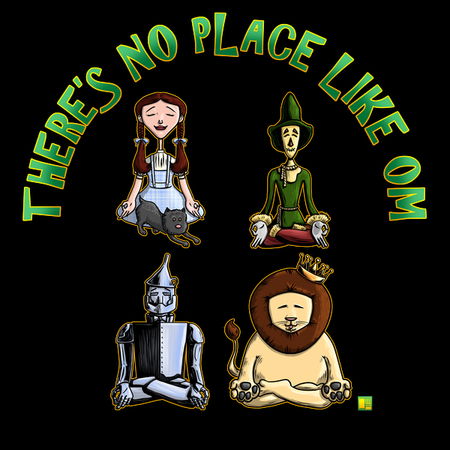
From The Writer's Almanac:
Today is Thanksgiving Day. When we talk about the first Thanksgiving, we're referring to an event that happened in 1621 in Plymouth, Massachusetts. But there were actually Thanksgiving ceremonies in the United States much earlier — in 1565, 600 Spanish settlers arrived in what is now St. Augustine, Florida, and had a Mass of Thanksgiving to celebrate their safe arrival, and followed it up with a feast. Other Thanksgiving celebrations occurred in El Paso, Texas, and in the Virginia Colony.
But the most famous is the Thanksgiving in the fall of 1621, when the Plymouth colonists celebrated with the Wampanoag Indians. It was the colonists' first harvest, so it was a joyful occasion. The Pilgrims had barely survived the last winter and had lost about half their population. But since then, they had built seven houses, a meeting place, and three storehouses for food. Now they actually had food to store.
They invited the Wampanoag Indians to feast with them. The Wampanoag people and their chief, Massasoit, were friendly toward the Pilgrims and helped teach them how to live on different land and with new food sources. A man known as Squanto, a Patuxet living with the Wampanoag tribe, knew English because he had been a slave in England. He taught the settlers how to plant corn, beans, and squash and how to catch eel and shellfish. And he was their interpreter.
So the Pilgrims asked the Native Americans to share in their first harvest. Harvest festivals were nothing new; both the English and the Wampanoag had similar traditions in their culture.
At the first Thanksgiving, they didn't eat mashed potatoes and pumpkin pie, and they probably didn't even eat turkey. The only two foods that are actually named in the primary accounts are wild fowl and venison. The meal was mostly meat and seafood, but probably included squash, cabbage, corn, and onions, and spices like cinnamon, ginger, nutmeg, and pepper.
Unlike our modern Thanksgiving, this event wasn't just one day. Many of the Wampanoag had to walk two days to get to the Plymouth settlement. There were about 50 English people and 90 Wampanoag, and since there wasn't enough room in the seven houses for the guests, they went ahead and built themselves temporary shelters. In between eating, they played games and sports, danced and sang.
The most detailed account of the first Thanksgiving comes from one of the Pilgrims, Edward Winslow. He wrote:
Our harvest being gotten in, our governor sent four men on fowling, that so we might after a special manner rejoice together after we had gathered the fruits of our labor. […] At which time, amongst other recreations, we exercised our arms, many of the Indians coming amongst us, and among the rest their greatest king Massasoit, with some ninety men, whom for three days we entertained and feasted.Thanksgiving has been celebrated as a national holiday on different dates, in different months, and one year it was even celebrated twice. It wasn't standardized until 1941, when President Roosevelt signed a bill declaring that the fourth Thursday in November would be Thanksgiving Day.
Happy Thanksgiving to all - the house is already redolent with the aromas of various food offerings... and we're expecting a full table of loving family and special friends. Of course it's a bittersweet day, this being the first major holiday without mom - I'm making her Southern cornbread dressing, and Sarah's preparing her pecan pie recipe, in remembrance...
I thought I was going to be okay with this holiday, because we didn't normally celebrate it with mom, but I've had some rough patches these last few days - the memories transcend calendar boxes and timelines and, bittersweet as it may be, we will honor the grief mixed with the gratitude...
It was interesting to go back and read last year's post, not too much different than this year's sentiment - wishing you and yours a most wonderful Thanksgiving...
SONG: The First Thanksgiving by David Stoddard
BOOK: Bless This Food: Ancient and Contemporary Graces from Around the World by Adrian Butash
POEM: Cranberry-Orange Relish by John Engels
A pound of ripe cranberries, for two days
macerate in a dark rum, then do not
treat them gently, but bruise,
mash, pulp, squash
with a wooden pestle
to an abundance of juices, in fact
until the juices seem on the verge
of overswelling the bowl, then drop in
two fistsful, maybe three, of fine-
chopped orange with rind, two golden
blobs of it, and crush
it in, and then add sugar, no thin
sprinkling, but a cupful dumped
and awakened with a wooden spoon
to a thick suffusion, drench of sourness, bite of color,
then for two days let conjoin
the lonely taste of cranberry,
the joyous orange, the rum, in some
warm corner of the kitchen, until
the bowl faintly becomes
audible, a scarce wash of sound, a tiny
bubbling, and then
in a glass bowl set it out
and let it be eaten last, to offset
gravied breast and thigh
of the heavy fowl, liverish
stuffing, the effete
potato, lethargy of pumpkins
gone leaden in their crusts, let it be eaten
so that our hearts may be together overrun
with comparable sweetnesses,
tart gratitudes, until finally,
dawdling and groaning, we bear them
to the various hungerings
of our beds, lightened
of their desolations.
QUOTE: "As we express our gratitude, we must never forget that the highest appreciation is not to utter words, but to live by them." ~ John Fitzgerald Kennedy





























No comments:
Post a Comment